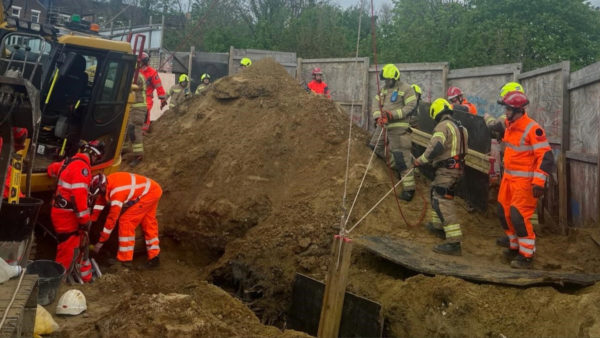
Two thirds (66%) of construction firms plan to retain home working after the coronavirus pandemic, research into flexible working funded by Sir Robert McAlpine has found.
With funding from McAlpine, which backs flexible working for all, flexible working campaigner Anna Whitehouse, also known as Mother Pukka, has produced a report entitled ‘Forever Flex: Making flexible working work beyond a crisis’.
The report is based on a survey of 1,420 employers and in-depth interviews with leaders and decision makers at 32 companies, spanning a range of sectors and sizes.
The research, conducted during lockdown, aims to provide employers with real-life success stories and evidence-based advice on flexible working.
The report comes after Sir Robert McAlpine backed Mother Pukka’s Flex Appeal campaign in 2019, to fund research that would provide flexible working solutions for employers and increase flexible working opportunities for employees.
McAlpine said it had chosen to support the project as part of its commitment to driving inclusion, improving the work life balance of its workforce, and addressing the issue of mental health in construction.
Subsequently, many workers across all industries have found themselves working flexibly as a result of the coronavirus pandemic and the focus of the Flex Appeal study shifted towards providing examples of successful flexible working, applicable for the long term, after the pandemic.
The report found that 72% of companies across all sectors wished to retain home working after the pandemic, while 33% of all employers noted an increase in productivity over lockdown, whilst 34% recorded an increase in employee wellbeing and happiness.
The report stressed that while the pandemic helped challenge common employer misconceptions around flexible working, there remains a need for greater clarity to facilitate a shift from the ‘accidental flex’ – unplanned changes to working patterns necessitated by the pandemic – towards a ‘true flex’, where flexible working is consistently and effectively utilised.
The report also provides recommendations for businesses on how they can successfully shift towards ‘true flex’, including:
- Go beyond HR: setting up workshops and coaching for leaders to help them understand how flex can be implemented properly
- Adjust the terminology: tailoring flex to your organisation’s specific culture and priorities to ease the transition for employees
- Test it out: to find out what works best for your business, pilot and trial flex working changes on small teams, rather than unveiling a big launch
Paul Hamer, chief executive at Sir Robert McAlpine, said: “The Forever Flex report is an essential and practical guide to exploring true flexible working that I invite everyone to read. I am proud that Sir Robert McAlpine has played a part in its production, and I hope it will be beneficial to employers and individuals alike, for the months to come.
“Of course, like many organisations across the country, we don’t have all the answers yet and are on our own journey to introduce flexible working for everyone, because each of us has the right to a healthy work life balance. This is the foundation for anyone to prosper in their professional environment and be happy in their personal life.
“If flexible working can somehow have a positive impact on mental health and help us reverse the alarming trend of male suicides in construction, then I am 100 percent committed to supporting it.
“I also believe that offering everyone a working environment in which they can thrive and be their best through flexible working can help pave the way to greater inclusion, diversity and the much-needed reduction of the gender pay gap.”
Comments
Comments are closed.










a very interesting fact that flex has been slowly introduced to different sectors.
in construction it was know as it will be impossible to work flex hours but Covid forced changed that idea and showed it is possible.
We learnt at primary school (junior level -grade 4) that flex is the better way to work, that was in 1997 and that reasoning was purely based on the fact that we need less cars on the road (traffic jams etc.) and saving on fuel.
Today it has lots of other good reasonings.
So flex is the way to go,even on siteworks,not everyone needs to be on site at the same time to execute their works.
thanx.